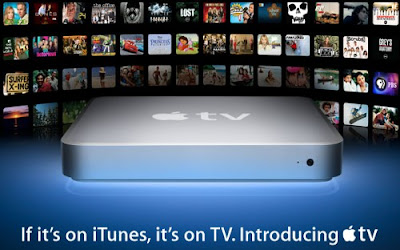

Twitter's recently rolled out Lists feature may spell the end of a micro-blogging tradition.
Follow Friday is one of the longest lasting and most beloved traditions on the micro-blogging site. But thanks to the new Twitter Lists feature, its days may be numbered.
As I type this, Follow Friday is topping Twitter's Trending Topics list. No surprise there. Apart from natural disaster or celebrity death, few things in this world have been able to knock the popular alliterative tradition off the list each and every Friday. Each week, like clockwork, countless Twitter users cull together a list people them deem worthy of a follow. All things considered, Follow Friday has had a pretty good run, especially given the fickleness that dominates the social media space. But as anyone following enough Tweeters can tell you, Follow Friday has started to wear out its welcome. Unless you're new to Twitter, weeding through the countless lists of names can be cumbersome. Enter Twitter Lists.
Like most things that Twitter does, Lists are elegant in their simplicity. Users essentially round up a select group of fellow tweeters and put them on their own landing page (complete with a vanity URL). The content of Lists is entirely up to the creator—there's no opt-in function. When I woke up yesterday, I found myself on a number of lists with names like Entertainment, Funny, Social Media, PCMag, and, I think, most pertinently, Permanent Follow Friday. (There were also a few more with slightly more baffling titles, such as Tracy Gold and Eye Candy for Your Butt).
The landing pages are easily accessible from the outside: The URL is twitter.com/username/listname. Users can jazz up the page as they would their own Twitter homepages, with a background and so on. Once the list is created, it is accessible from the homepages of all of those on it. (Unfortunately, there doesn't seem to be an easy way to opt out at present; so if you find your way onto, say, a list called "The World's Biggest Douchebags," anyone who follows the link from your site will know.) If you like a list, just click Follow This List at the top of the page. For more on how Lists works, check out this AppScout post.
Lists are a good way to follow people without having to weed through a million tweets on your homepage. They're also an easy way to let other people know which users are worth following—in other words, now every day is Follow Friday. And the Lists feature is far less ethereal than sending out a bunch of names in a tweet. Best of all, unless you choose to repeatedly alert others about to existence of your list, the feature is less intrusive than Follow Friday.
But before we start morning the inevitable death of Follow Friday, let's instead celebrate its legacy. One of Twitter's greatest strengths as a company is its ability to learn from its user base, a fact well demonstrated by Twitter Lists; the new feature is built around needs that were addressed by Follow Friday and also by third-party user directories such as Kevin Rose's WeFollow (itself recently purchased by Rose's flagship project, Digg). If anything, Twitter Lists are the logical in-house conclusions of such initiative. Follow Friday may soon be gone, but it won't be forgotten.
-pcmag








